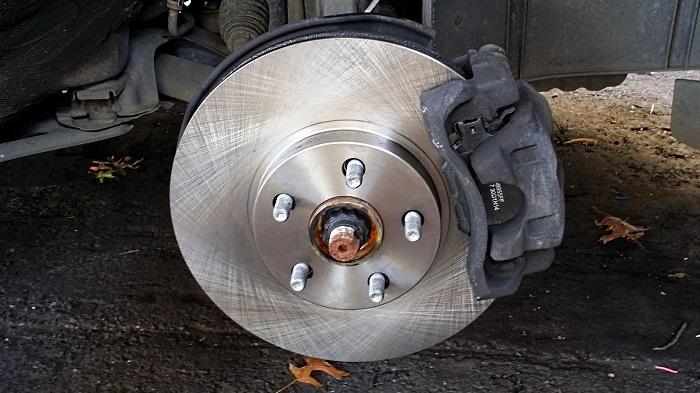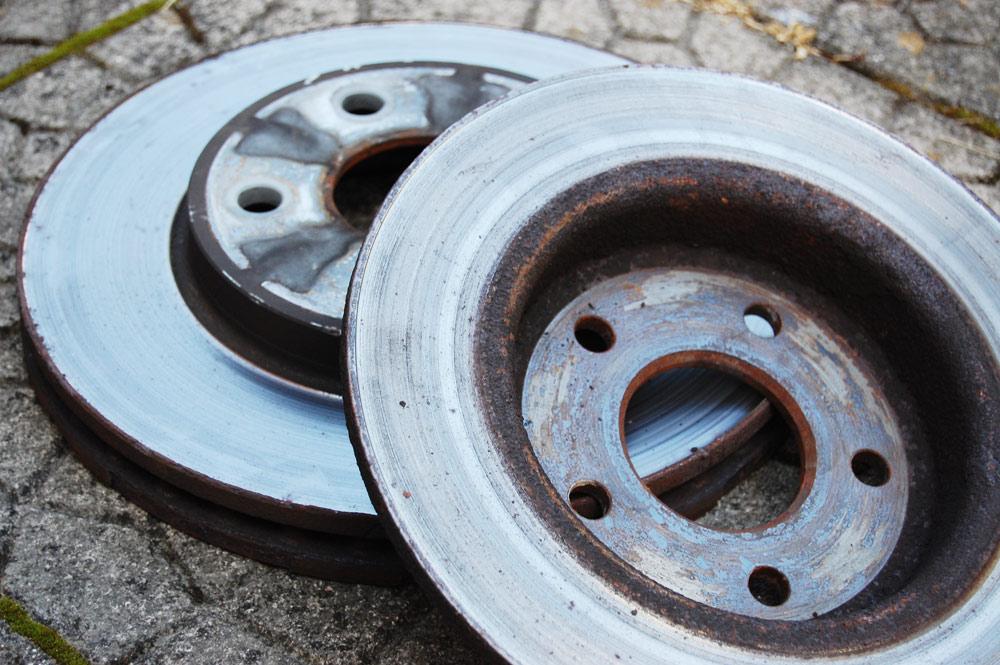If your car is making grinding noise when braking?check the reasons.
Sometimes, your car makes grinding noise when braking. It’s a warning sign telling you that there’s something wrong either with the brakes or the rotors. Many car owners like to ignore such sounds for fear of extensive repair. Well, you shouldn’t do this mistake! Ignore your automobile’s moans and groans and it may cost a fortune to repair down the road.
What Happens When You Ignore Brakes Making Grinding Noise?
Vehicles can make various sounds and some are normal and harmless. Nonetheless, you should never turn a deaf ear to grinding noise when braking because it could endanger your safety! The car has to generate plenty of heat energy through friction every time you push the brake pedal. As a result, the brake pads can wear out over time, causing the damage of the rotor and caliper and the brakes to fail. Faulty brakes are never good news because it may lead to major accidents. So, ignoring brakes grinding will only make the problems worse.
The Causes Of Grinding Noise When Braking
All the parts and components of a vehicle are supposed to fail or wear out at some point. However, what is important is to identify the problems before these become serious. So, find out the causes of brake noises and take the car to the repair shop if necessary.

1. Worn-out Brake Pads
Worn-out brake pads are one of the reasons for making a grinding noise when braking. If your brake pads are used for quite a long time, the backing plates will gradually lose its material. This causes metal touching other metal, resulting in squeaking noises. Besides, the rotor can also rub the caliper and scrape its metal surface. Thus, if you do not replace the pads immediately, your brakes will be severely broken. Moreover, the backing plate and the caliper will destroy each other, causing grooves and damage.
2. Low-Quality Brake Pads
Many people think buying a low-quality pad is a good way to save some bucks. But actually, it’s a wrong decision. The poor quality brake pads often contain metal chunks, which will rub and scrape on the surface of the rotor, causing heavy damages. So if you are planning to replace the pads, choose good products from a renowned brand.
3. Solid Objects Between Rotor And Caliper
It’s normal for the components to catch dirt, dust, and grime. However, sometimes small rocks or other solid objects from the road can between the caliper and rotor and create brakes grinding noise whether you push the brake or not. The frictions created from such an object can damage these parts.!
4. Broken Shims
Another reason responsible for the grinding noise when braking is broken shims. A worn-out shim will make a contact with a piece of the braking system, such as the rotor. When metal comes together with other metal like this, they will create a grinding sound from your braking system.
So anytime you get a brake job done, you must replace the shims. Sometimes, your mechanic may avoid this as they want to do their job rapidly, so make sure that they do replace them for you.
5. Not Driving The Car Often
It’s another reason your car is making a grinding noise when braking. Brake pads have an average lifespan of 20,000 miles. Nonetheless, they may not last that much longer for some reason. One probable cause is leaving the automobile in your garage for weeks. Idleness and bad weather can cause the forming of rust and corrosion on the rotors. It that case, the rust will spread to other parts too and destroy them. You should drive the car regularly, at least for a while, to avoid this problem.
6. Worn-out Rotor Discs

Worn-out rotor discs are possible culprit creating annoying noises from the braking system. Rotor discs that aren’t flat will cause squeaking sounds. Rotor discs that are too worn-out will create scraping sounds instead. Moreover, worn-out rotors will cause a lot of vibrations from the braking system. These vibrations come at irregular forms and you can easily feel them through the brake pedal. This case is less popular than the first one.
7. Faulty Wheel Bearing
If you hear the grinding noises from your wheels or observe vibrations that alternate from quiet to loud, then you may have a worn-out or damaged wheel bearing. So check the wheel bearings carefully and replace them if needed to get rid of annoying sounds.
8. Unlubricated Caliper Bolts
Caliper bolts will make a grinding sound when braking if they are lack of lubrication. This case rarely occurs, but it could. An auto mechanic will automatically replace new caliper bolts for you during his repair work.
Frequent Asked Questions About Grinding Noise When Braking Issue
1. Are Grinding Noises From Braking System Dangerous?
Your brakes are one of the most important safety parts in your vehicle. So if you notice any warning signs like squeaky or grinding sound when braking, it’s time to get a pro to check your vehicle, or else your safety will be in danger.
2. How Much Does It Cost To Have Your Brakes And Rotors Replaced?
A brake repair job for one wheel including new calipers, pad replacement, new rotors, and labor can cost you from $300 to $800 depending on your car and other factors. If all of these parts need to be replaced, the fee can easily expand to $1000+. The average cost is around $500.
3. Can I Drive My Car With Bad Rotors?
Bad rotors have a low ability to absorb and disperse heat causing the braking system to overheat. Though you still drive a car with bad rotors, these bad rotors will create the point that the brakes can not work effectively and might entirely fail, putting you and your vehicle in danger.







No comments